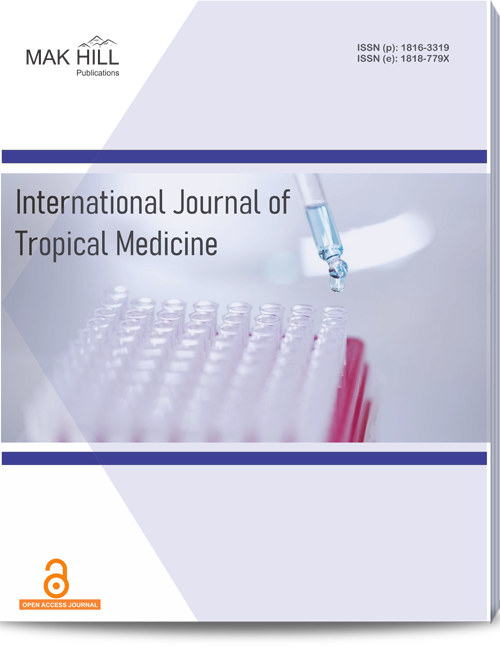
International Journal of Tropical Medicine
ISSN: Online 1818-779XISSN: Print 1816-3319
Abstract
Cardiac surgery is associated with significant perioperative risks, and anesthetic management plays a crucial role in patient outcomes. This study aimed to investigate the impact of anesthetic choice on postoperative outcomes in cardiac surgery patients. A retrospective cohort study was conducted involving 100 consecutive adult patients undergoing elective cardiac surgery. Data on demographic characteristics, preoperative risk assessment, intraoperative anesthetic management, hemodynamic parameters, intraoperative events, postoperative complications, and secondary outcomes were collected and analyzed. The mean age of the study cohort was 65.8 years, with a moderate preoperative risk profile (EuroSCORE mean: 5.2). Intraoperative anesthetic management predominantly involved volatile anesthetics (70.0%) and adjunctive medications such as opioids (50.0%). Hypotension (20 episodes) and arrhythmias (10 episodes) were observed intraoperatively. Postoperative complications included myocardial infarction (10.0%), stroke (5.0%), renal dysfunction (15.0%), respiratory complications (20.0%), and surgical site infections (8.0%). Secondary outcomes revealed a mean ICU length of stay of 2.5 days, hospital length of stay of 7.2 days, and 30‐day mortality rate of 3.0%. This study highlights the complex interplay between anesthetic choice, intraoperative management, and postoperative outcomes in cardiac surgery patients. Optimal perioperative care, including meticulous preoperative assessment, tailored anesthetic management, and vigilant postoperative monitoring, is essential for optimizing patient outcomes and reducing perioperative morbidity and mortality.
How to cite this article:
J. Suresh and Srinivasa Rao Janapati. The Impact of Anaesthetic Choice on Postoperative Outcomes in Cardiac Surgery Patients: An Institutional Analysis.
DOI: https://doi.org/10.36478/10.59218/makijtm.2024.1.109.115
URL: https://www.makhillpublications.co/view-article/1816-3319/10.59218/makijtm.2024.1.109.115